Grieving spouses, partners in need of a LIFT find a lifeline in one another’s company
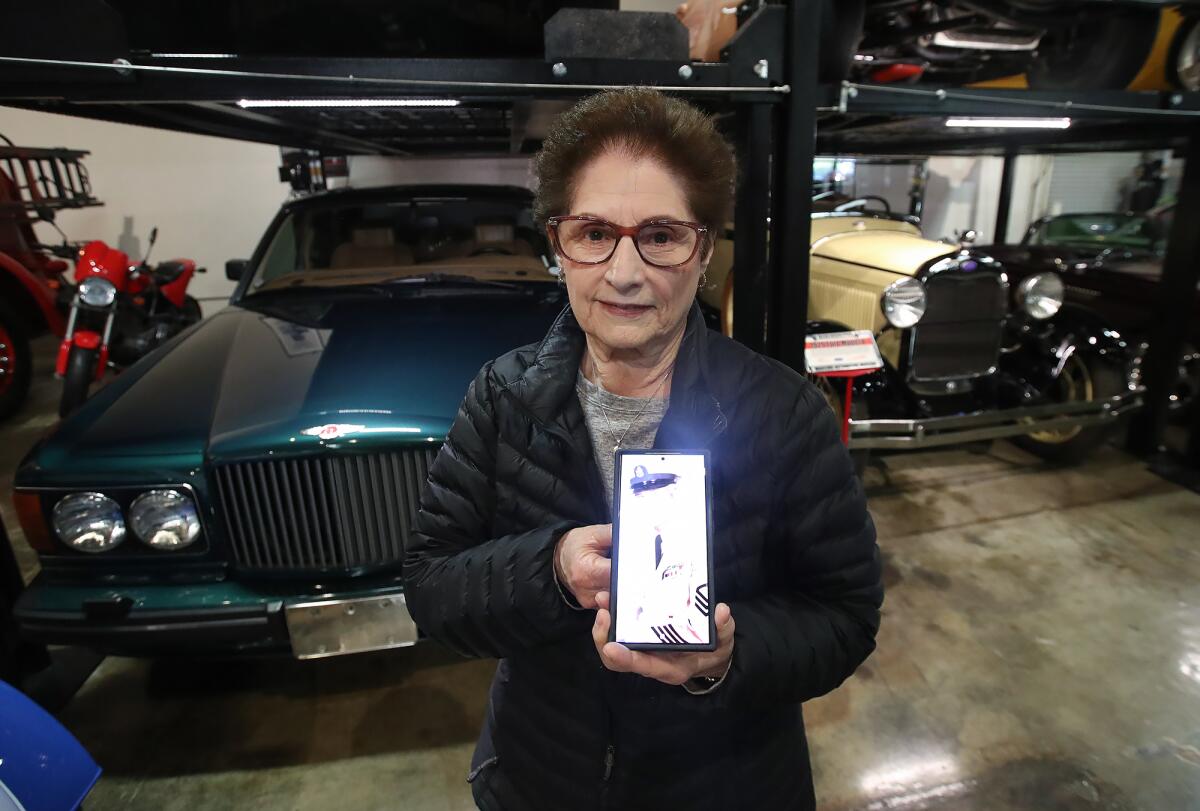
- Share via
Throughout nearly 50 years of marriage, Iris and Robert McCray were like two peas in a pod — doing practically everything together, from camping to traveling the world together to building a robust social network with other “couple friends.”
Though he was more than a decade her senior, Iris recalls first meeting Robert as a youth while visiting Malibu. He was an officer in the Navy and had just come back from deer hunting with a friend. Several years later, they would marry, settle down and raise a family in Westminster.
“We had a wonderful relationship,” McCray, now 78, recalls. “We were never apart, unless he went deer hunting.”
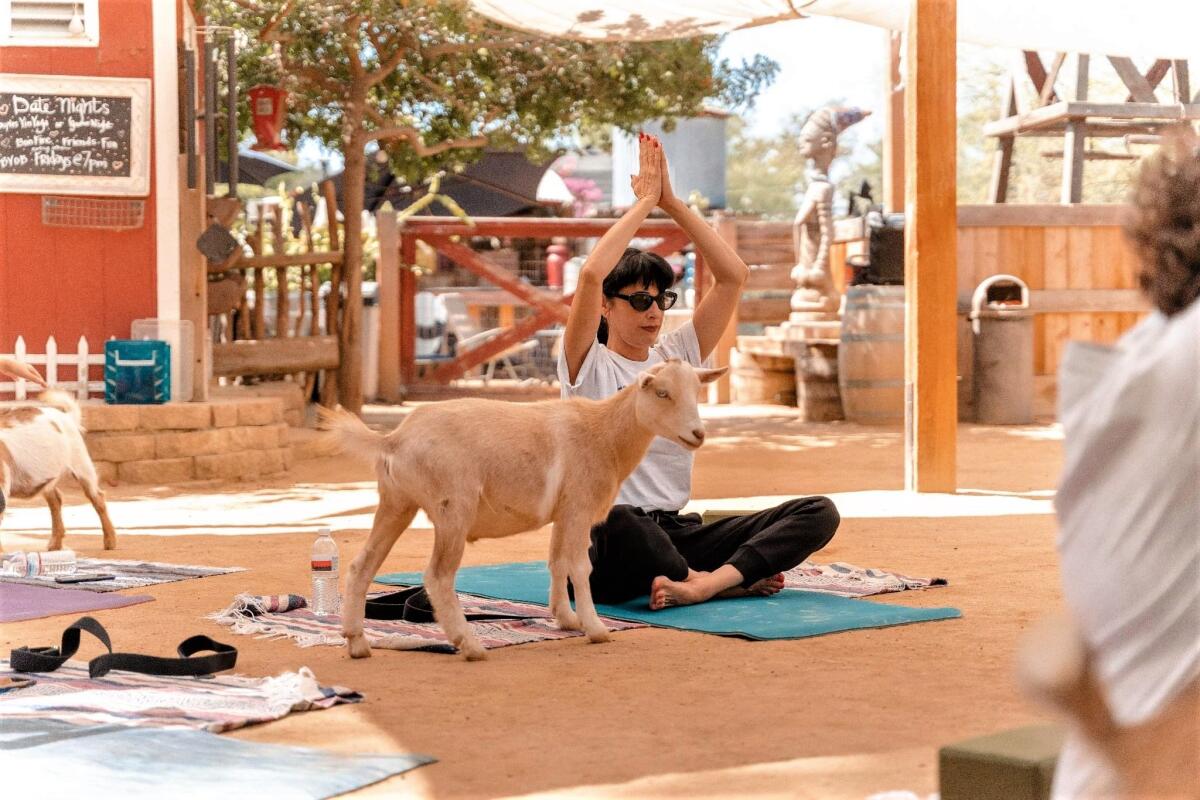
The couple’s closeness and camaraderie served them well, all the way until Robert’s passing in August 2018 at the age of 93. His last provision was that the couple’s adult son, Erick, move into the family house so Iris wouldn’t be alone.
Despite having a family companion in residence, the septuagenarian found it difficult to maintain the same social life she’d previously enjoyed as one half of a dynamic duo.
“Once you’re single again, it’s very hard to stay in with the couples. And, being my age, everyone I know is passing,” says McCray, who still keeps a photo of her husband in his military uniform as her cellphone background.
“Your first year is rough, but your second year is even rougher. People drop you. You’re on your own.”
When the time was right, however, McCray discovered a life line available to her through an unexpected source — Westminster Memorial Park and Mortuary, which had handled the details of her husband’s service.
The organization is one of six local sponsors of a campaign, created nationally by Dignity Memorial and organized in Orange County through Santa Ana’s Fairhaven Memorial Park & Mortuary, designed to create a supportive community for those who’ve lost their spouse or partner.
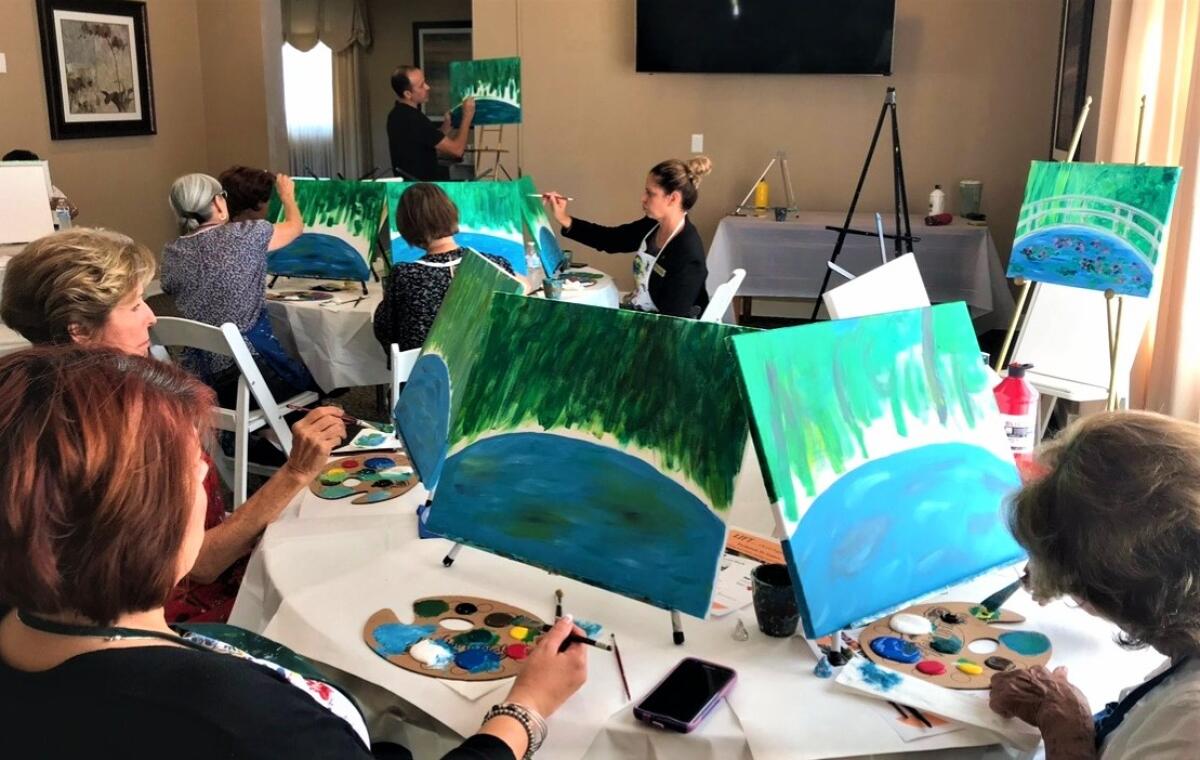
Living Information for Today (LIFT) offers monthly meetups, outings and classes designed to help seniors who may be still grieving their loss, experiencing isolation or learning to navigate the world on their own, according to Fairhaven campaign coordinator Cynthia Adair.
“It’s a social support group to provide opportunities for social involvement for those who understand the journey surviving spouses are going through,” she says of the free program.
“It’s not a fun fact, but when somebody from a long-term relationship loses their spouse, they also lose a lot of their social circle. They no longer feel comfortable being a third wheel or the extra person,” Adair adds. “Providing this community helps make it more comfortable for them.”
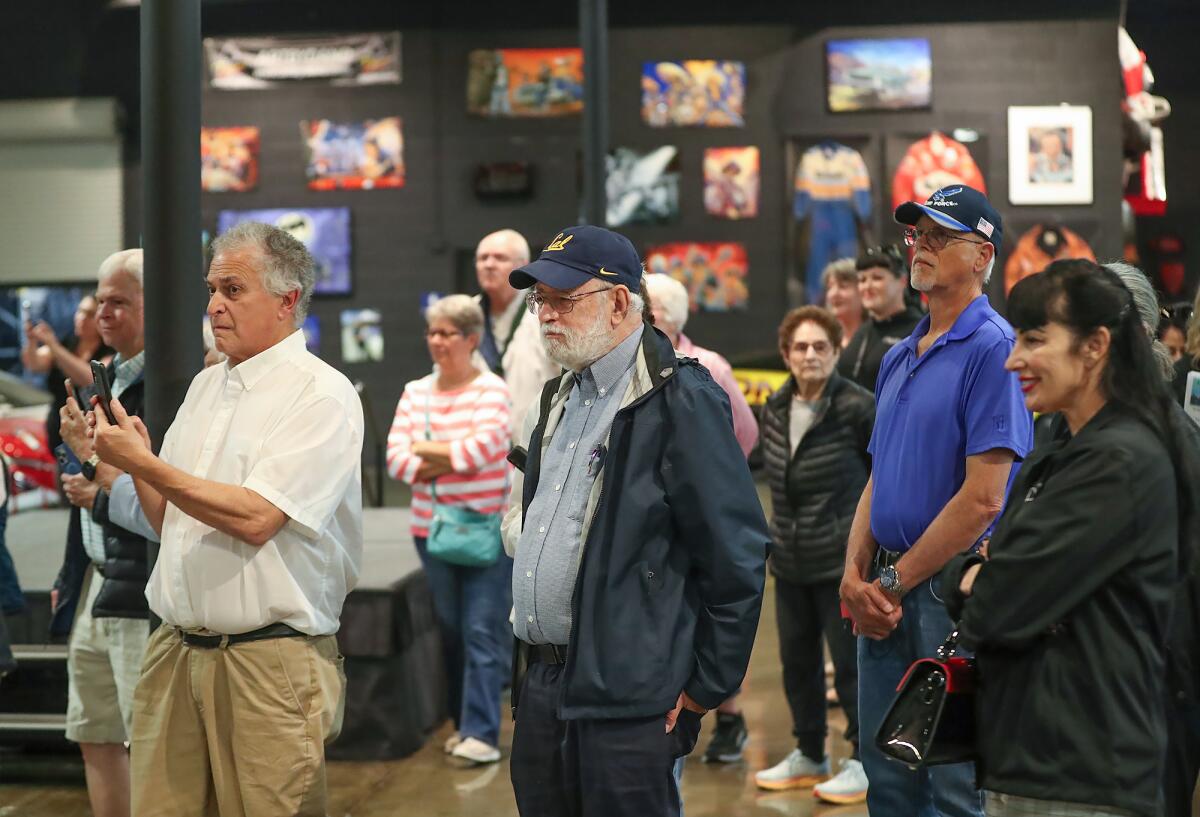
While grief support groups may be offered to individuals immediately following a death, LIFT O.C. is for people who may be ready to begin getting back into the swing of things socially but may still be experiencing sadness, isolation or living on their own for the first time in decades and navigating the responsibilities that accompany that newfound independence.
To that end, some LIFT offerings have an educational component, such as a cooking-for-one class designed to get people back to making healthy meals at home, albeit on a smaller scale, or a talk from a police officer about how to avoid common scams.
Other events are purely social, whether attendees are enjoying a historical walking tour, taking a moment for self care during a meditation class or experiencing the adventure of goat yoga.
“During that immediate grief, you’re in survival mode. But at the six-month to one-year point, people may begin to realize they need to start getting out of the house,” Adair says. “This feels like a very safe way to do it because they’re surrounded by people who understand what they’re going through.”
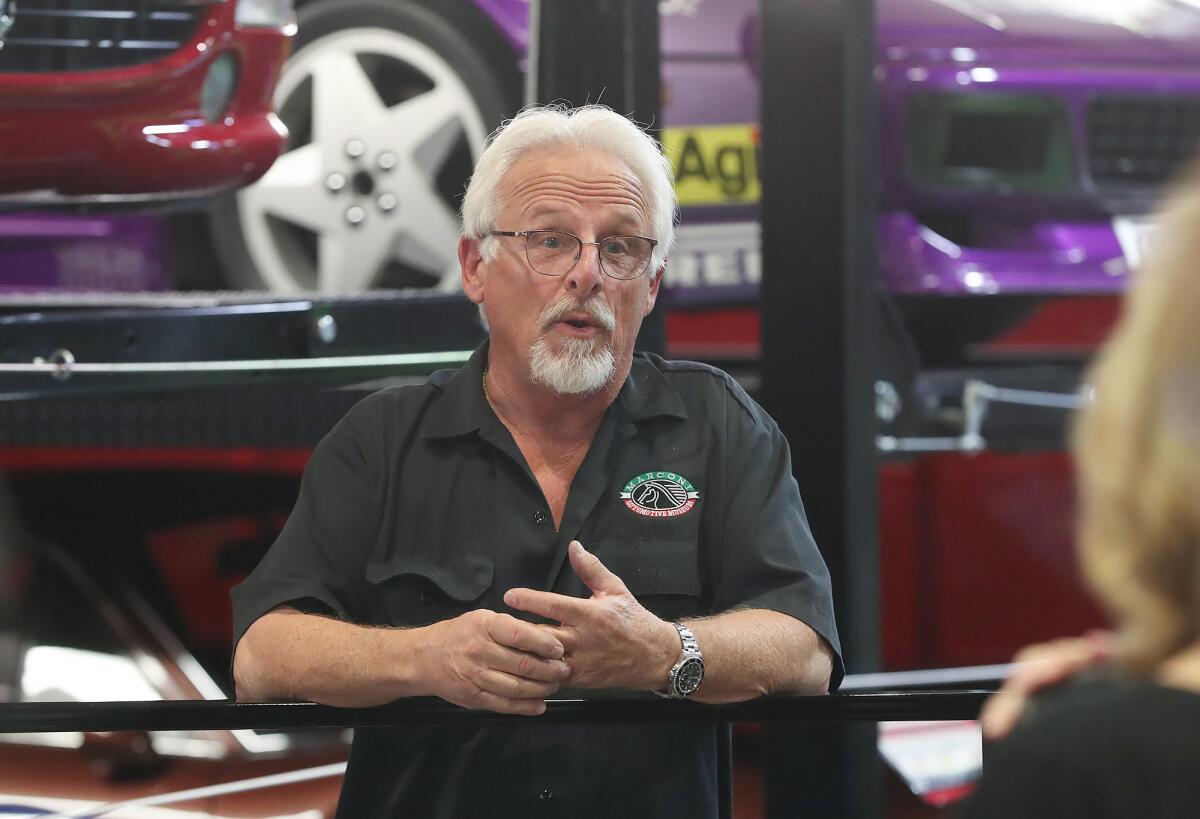
A group of about 20 LIFT members on Tuesday visited Tustin’s Marconi Automotive Museum, where a collection of more than 100 muscle cars, racing cars, Lamborghinis, Ferraris, motorcycles and memorabilia has been curated in a third-generation family-owned business.
Some, like McCray, came with a few friends, but many flew solo. Among them was Garden Grove resident Carolyn Nelson, who 2½ years ago lost her husband Warren to cancer and who learned about the group through her dealings with Fairhaven Memorial.
“Somehow, I ended up on their list. So I went to the grief group and then the LIFT things,” she says. “Now I do mostly social things.”
Nelson met Warren in 1997, several years after the sudden loss of her first husband, Ed. The two were both widowed and met in a church small group, then quickly formed a friendship.
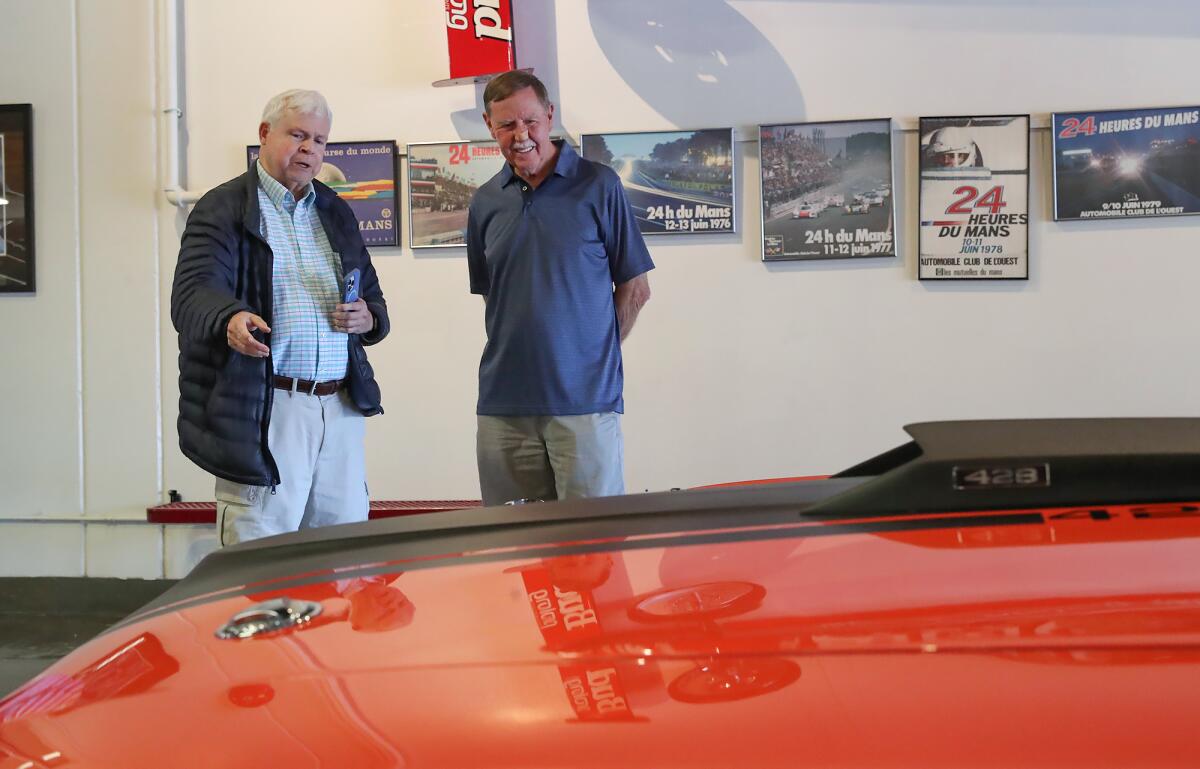
In the wake of her most recent loss, Nelson says she’s taken comfort from Warren’s children and grandchildren, who still count her as part of the family. But it’s good to go to LIFT activities and be around others who’ve endured the same difficult journey.
“It gives you a purpose for an outing you know will be nice,” she reckons. “And if you think you need to go off somewhere and cry in a corner, nobody’s going to judge you.”
McCray said for her, the activities connect her to a social network that keeps her calendar full.
“There’s just so many things that we do,” she says. “That’s what gets you going.”
All the latest on Orange County from Orange County.
Get our free TimesOC newsletter.
You may occasionally receive promotional content from the Daily Pilot.







